by Lata Narayanaswamy and Julia Schöneberg
In our one-day workshop we aimed to overcome academic “silos” and connect scholars from diverse fields in the social and natural sciences. Surprisingly, or probably not so, we quickly realized that struggles, discomforts and contestations were very similar among us regardless of whether our discipline is Peace Studies, Agro-Forestry, History, International Relations, Development or Political Studies or Educational Sciences. The true challenge for our workshop was to reflect not only on how we “know” the world, but also why this question matters and what are the implications for us as teachers, researchers and practitioners, committed to challenging entrenched power imbalances or fighting for social justice.
The red thread of the day was our wrestling with questions of power in all its nuances and especially in relation to doing research and being researcher, to conceptualizing teaching and being teacher and to building collaboration and community, among our own academic hierarchical (oftentimes neoliberal) settings and with those we claim to re-search. There was an overriding sense that these three areas are not distinct but rather overlap in important ways and affect how and with whom we engage.
Having identified that power in itself is key, the following additional questions arose:
- How do we identify power?
- How might we use that power productively to pursue some of the goals that arose in our discussions, such as inclusion, co-production and social justice?
- There is a tendency for the answer to the question of ‘power’ being one of self-reflexivity – but how do we move beyond the tick-box of subjectivity to truly address the concerns around power imbalances in teaching, research and collaboration? How can we take it as a starting point rather than as an egocentrism?
What did we make of it?
Firstly, one of the lessons from the discussions was around experiential learning – it is not enough to sit at a desk and try to plan or claim that we understand the diversity of research contexts we might enter; rather, we need to learn through experiential learning if we are to start addressing power imbalances. We need to accept that we are all learners, not making ourselves believe that we are those that gather and hold knowledge(s).
Secondly and relatedly, we must recognise that we cannot always foresee, or plan for, the potential impact of our research – this became clear as so many workshop participants described well-meaning research plans only to be confronted by resistance by stakeholders in the field or the confrontation with reality that does not match the expectation of the planning at their desks!
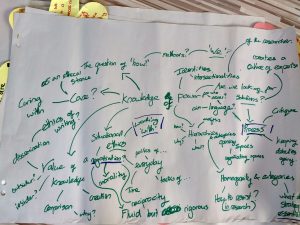
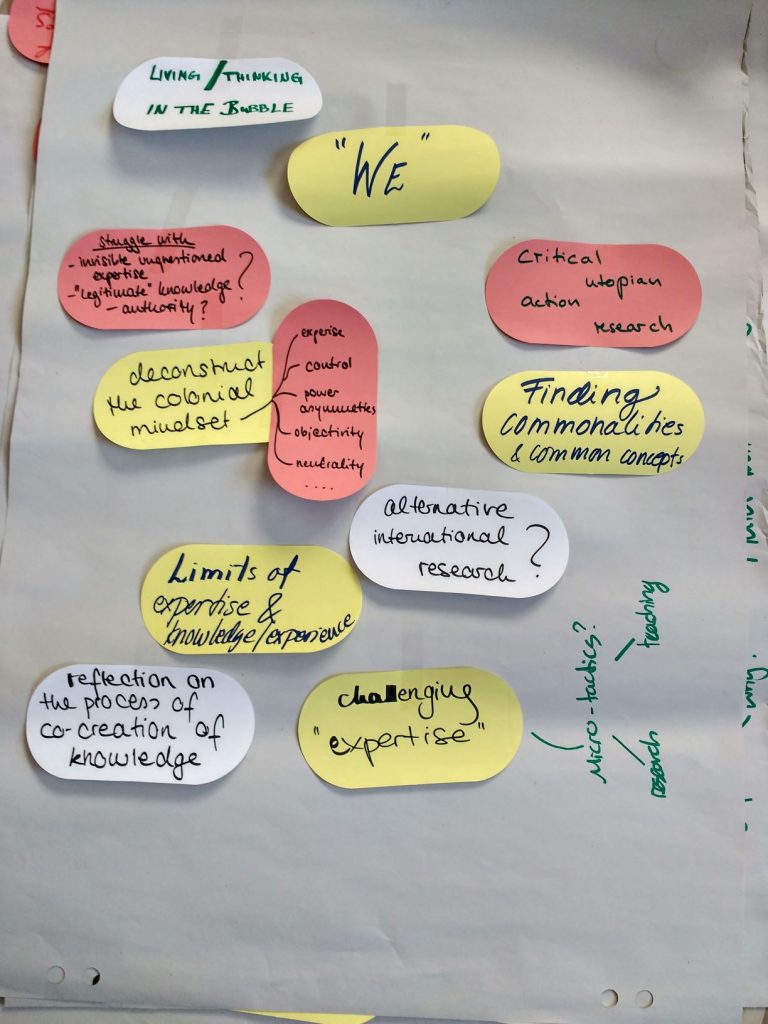
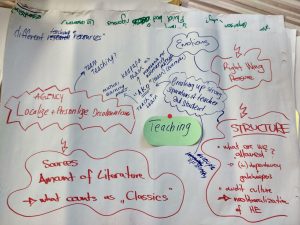
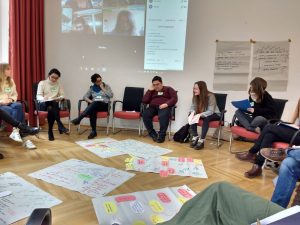
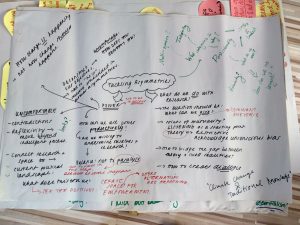
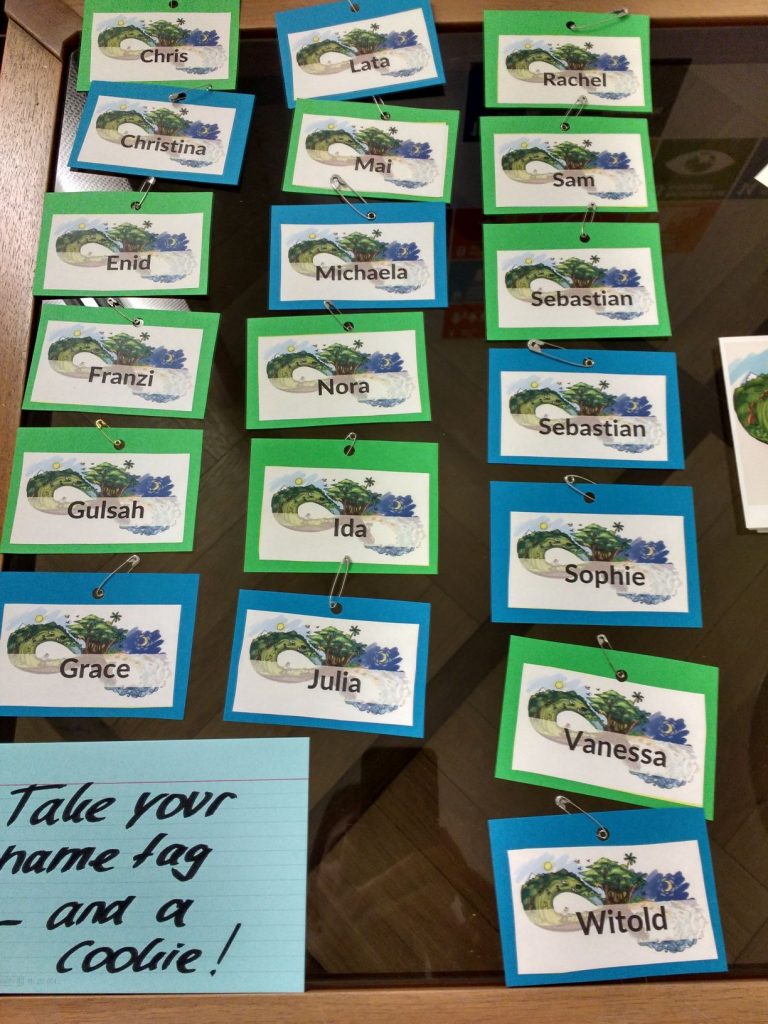
Thirdly, there is real value in sharing personal and professional experiences; these arose in discussions in relation to bodies (hairstyle, dress, comportment, race) and how professionalisation shapes approaches not just to our bodies, but also extends to standards on research and expectations of the academic experience.
Fourthly, we had discussions about space. This was particularly illustrative with the example with Frankfurt Postcolonial’s mapping exercise, thinking about Frankfurt’s colonial past as part of the city’s physical spaces.
Fifth, we discussed ‘how’ we know, e.g. through communications (written word, academic journals) and languages and the ethics of telling stories that are not our own.
And, finally: who is “we”? Who is included and who is not? Are we prepared to challenge our own expertise? Essentially, we must recognize that there are things that we cannot know and grasp from the position we are standing at but someone else might be much better suited. This means being true to oneself and others, being open and reflexive, seeking out silences and gaps and allowing and countering discomfort in the process.
This workshop has been kindly supported financially by the EADI.
You want to know more? Follow our blog series to find out how the workshop participants face and attempt to counter these questions and struggles!
Lata Narayanaswamy and Julia Schöneberg co-organised the workshop and learned and benefited tremendously from the openness, reflexivity and willingness to share personal struggles of everyone attending.
